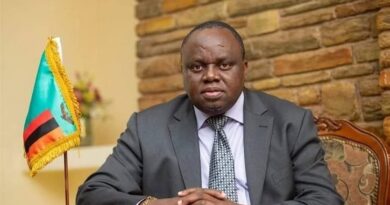AfDB Funds €73m Skills and Jobs Project in Equatorial Guinea
The African Development Bank Group has approved a €73.27 million loan to Equatorial Guinea for the first phase of the Human Capital Development Project in Support of Economic and Social Inclusion (PARCH 1).
Spanning five years (2025–2030), the initiative is designed to strengthen vocational training and broaden access to employment opportunities for young people, with a particular focus on women, in order to accelerate private sector-led growth.
As part of the project, two state-of-the-art provincial polytechnic institutes will be built in Bioko Sur and Welé-Nzas. These facilities will provide flexible, market-driven training in priority sectors such as agriculture, fisheries, public works, tourism, and digital technology. The training will be delivered in close collaboration with the private sector to ensure relevance to industry needs.
“The successful implementation of PARCH 1 is expected to create 4,500 jobs for young people and women, support the establishment of 500 new businesses—most led by youth and women—and provide training and job placement opportunities for 1,935 beneficiaries,” said Léandre Bassolé, Director General of the Bank for Central Africa.
The programme is structured around three key components: enhancing vocational training to align with high-growth value chains; boosting youth and women’s employment by improving the entrepreneurial ecosystem and advancing economic and social inclusion; and strengthening project management and partnerships.
Equatorial Guinea currently faces a youth unemployment rate of 23.5 percent, with women disproportionately affected at 26.7 percent. A significant share of young people—around 16.5 percent—are either unemployed, untrained, or have left school early, often resorting to informal sector activities that fuel social instability.
The country’s technical and vocational education and training system has long suffered from budgetary shortfalls, receiving less than 2 percent of national resources. Inadequacies in curriculum design and skills recognition have further hindered its effectiveness.
The AfDB’s intervention is expected to help reduce unemployment and underemployment, while promoting greater economic inclusion and stability, particularly in Bioko Sur and Welé-Nzas.
As of 30 August 2025, the Bank’s active portfolio in Equatorial Guinea comprised six projects valued at €85 million, with investments concentrated in agriculture and fisheries (65 percent), governance (34 percent), ICT (0.69 percent), and energy (0.55 percent).



